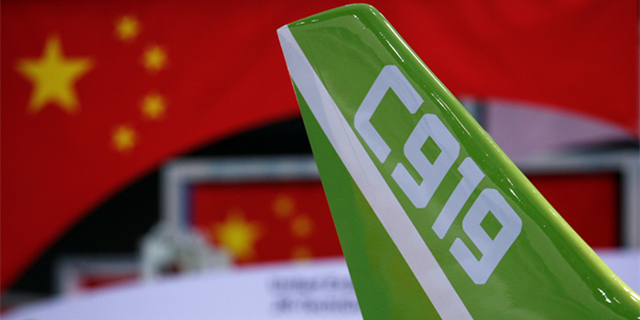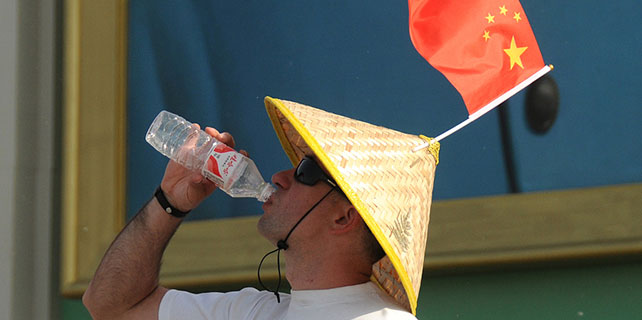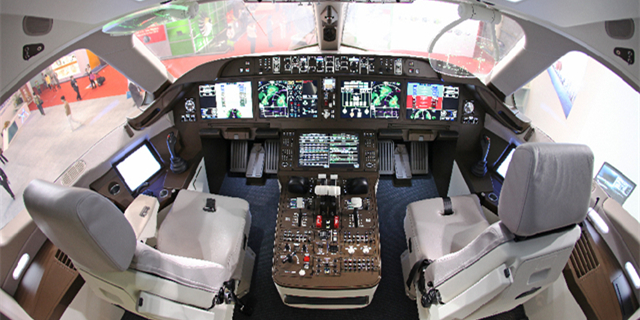Crucial player

With huge financial firepower at its disposal, AIIB could prove vital to sustaining global growth
Investment in Asian infrastructure might seem to many in the West like a mere regional concern — yet it could hold the key to sustaining global growth and providing jobs both in Europe and even in Donald Trump's Rust Belt.
Asia — which has been the engine of global growth for a decade or more — needs to spend $1.7 trillion a year on infrastructure up to 2030 just to maintain its current growth levels, according to the Asian Development Bank. It is currently spending just around half of that, $881 billion.
If the roads, railways, airports, power stations, water systems and other projects are also not built in an environmentally sustainable way, the planet itself could be irreparably damaged with global warming levels rising beyond control.
The Asian Infrastructure Investment Bank, headquartered in a futuristic skyscraper building on Financial Street in Beijing's Xicheng district, could therefore prove to be one of the most important and influential institutions in the world over the next few years.
Launched in January last year it is one of the most tangible projects — along with the Silk Road Fund — to so far emerge from the Chinese government's Belt and Road Initiative.
With $100 billion of authorized capital, more than that of the World Bank itself, it has huge financial firepower at its disposal.
With 57 founding members, including the UK, France, Germany and Italy as well as Egypt from Africa (South Africa is a prospective member), it is determined to show that it is a multilateral, rather than just a Chinese, institution.
To underline this, the bank's charismatic 67-year-old president Jin Liqun, himself a former vice-president of the Asian Development Bank, signed an agreement with World Bank President Jim Yong Kim in Washington on April 23 to strengthen cooperation between the two institutions.
"Signing this memorandum of understanding fits into our vision of a new kind of internationalism," said Jin.
"It deepens our relationship with the World Bank Group and sets up the mechanisms through which we can more easily collaborate and share information. We place a high value on our partnerships, because by working together we greatly increase our potential for positive outcomes in Asia."
The AIIB was first proposed by President Xi Jinping during a speech in Jakarta in October 2013.
China remains the largest shareholder, with a 26 percent holding, enough to give it a veto over major strategic decisions which require a 75 percent majority.
With new members coming on board, that shareholding will be diluted, so China will have no greater control than any other country member.
When the bank was being set up, the administration of then US Barack Obama refused to join and put pressure on its allies to also not participate, in what many now believe was a clumsy strategic mistake.
But the UK, which was trying to build a new "golden era" of relations with the world's second-largest economy, signed up, followed by other major European economies.
James Woolsey, the former director of the Central Intelligence Agency and an adviser to US President Trump during his campaign, indicated the US would, in fact, join but there has been no clear signal so far.
"I think it is unlikely unless it came as part of a big wider deal between Trump and Xi Jinping," says Jacob Kirkegaard, senior fellow at the Peterson Institute in Washington.
"During the next Democratic administration or a normal internationally-minded Republican one, I could see it."
It has been suggested that the AIIB was an attempt by Beijing to reshape the global financial architecture, which is dominated by the Washington-based International Monetary Fund and the World Bank.
So far, however, the new institution has actually co-financed five projects with the World Bank, including a power generation project in Pakistan, a natural gas pipeline in Azerbaijan and infrastructure development in Indonesia. It has also worked on projects with the Asian Development Bank, itself set up in 1966 and in which Japan has played a dominant role.
"If you look at the management that they (the AIIB) have appointed, many of them come from having direct experience with the World Bank. The Chinese government has always seen the AIIB as a complement and not a competitor to the existing international development banks," adds Kirkegaard.
Sun Yongfu, former director-general of the European department of the Chinese Ministry of Commerce, agrees that there needs to be new institutions like the AIIB because the scale of the funding need is so huge.
"The existing institutions cannot meet the demands of the countries within the region. There is a need for the AIIB to provide more financial support."
Lourdes Casanova, director of the Emerging Markets Institute at Cornell University, however, believes the AIIB has arisen partly out of frustration with the existing global financial order, something she says is reflected by the number of developing countries that are founding members.
"China and many of the emerging market economies like Brazil have been wanting a more prominent role within the existing multilateral banks. The World Bank and the IMF have always been dominated by the US and Europe," she says.
"It has been very successful in terms of the number of countries that have joined, which I think has been amazing."
Jeffrey Towson, professor of investment at Guanghua School of Management in Beijing, says where the AIIB is most distinct from the other institutions is its specialization in infrastructure.
"If you look at the World Bank, I can't figure out what it does from its mission statement. It is a bit like a laundry list. It says it is going to increase employment, trade and create stability and peace and all these kind of things," he says.
"Focus, however, matters in my view. You look at the AIIB and it is an absolutely clear strategy. China does infrastructure better than anyone else. No one is even in their league. Strategically, this makes a lot of sense."
With Asia's infrastructure deficit widening, some believe the region is in a similar position now to how Europe was in the immediate aftermath of World War II.
It was then that the International Bank for Reconstruction and Development — now part of the World Bank Group — was set up at Bretton Woods in 1944 to finance many of the much-needed projects to resurrect Europe's bombed-out cities.
"There is a direct parallel. It was set up to deal with what was a devastated Europe," says Zhu Ning, Ocean wide professor of finance at Tsinghua University.
"While although Asia is not now devastated in the same sense, there is a similar need for infrastructure spending on a huge scale. It is a moment of history for Asia now, as it was for Europe then."
The bank will aim to tackle the infrastructure deficiency that is now acting as a constraint on the economic growth of the region, which also has worrying implications for global growth.
Kirkegaard at the Peterson Institute says this could be critical.
"Not only would the world lose an important engine of growth in Asia but there are still hundreds of millions of people, although while not in abject poverty, who do not have access to clean and running water and many other basic facilities."
He says there could be hugely damaging consequences for the planet if the infrastructure is not built sustainably, without consideration for the environment.
"This has to be got right or you are going to end up with a situation that you had in the United States after World War II, when all the infrastructure was built in a very energy-intensive polluting manner. If this happens again, we are all going to get very warm very quickly."









